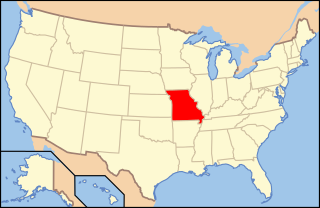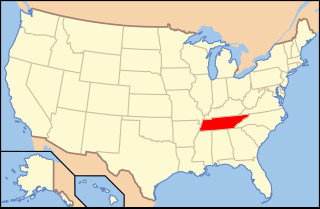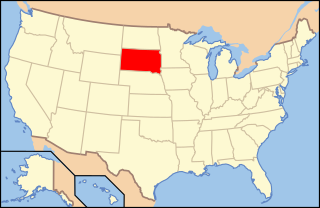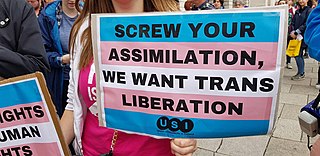Related Research Articles
Gender dysphoria (GD) is the distress a person experiences due to a mismatch between their gender identity—their personal sense of their own gender—and their sex assigned at birth. The term replaced the previous diagnostic label of gender identity disorder (GID) in 2013 with the release of the diagnostic manual DSM-5. The condition was renamed to remove the stigma associated with the term disorder.
Obstetrics and gynaecology is the medical specialty that encompasses the two subspecialties of obstetrics and gynaecology. The specialization is an important part of care for women's health.

Lesbian, gay, bisexual, transgender and queer (LGBTQ) people face difficulties in prison such as increased vulnerability to sexual assault, other kinds of violence, and trouble accessing necessary medical care. While much of the available data on LGBTQ inmates comes from the United States, Amnesty International maintains records of known incidents internationally in which LGBTQ prisoners and those perceived to be lesbian, gay, bisexual or transgender have suffered torture, ill-treatment and violence at the hands of fellow inmates as well as prison officials.
In the United States, the rights of transgender people vary considerably by jurisdiction. In recent decades, there has been an expansion of federal, state, and local laws and rulings to protect transgender Americans; however, many rights remain unprotected, and some rights are being eroded. Since 2020, there has been a national movement by conservative/right-wing politicians and organizations to target transgender rights. There has been a steady increase in the number of anti-transgender bills introduced each year, especially in Republican-led states.

Lesbian, gay, bisexual, and transgender (LGBT) people in the U.S. state of Florida have federal protections, but many face legal difficulties on the state level that are not experienced by non-LGBT residents. Same-sex sexual activity became legal in the state after the U.S. Supreme Court's decision in Lawrence v. Texas on June 26, 2003, although the state legislature has not repealed its sodomy law. Same-sex marriage has been legal in the state since January 6, 2015. Discrimination on account of sexual orientation and gender identity in employment, housing and public accommodations is outlawed following the U.S. Supreme Court's ruling in Bostock v. Clayton County. In addition, several cities and counties, comprising about 55 percent of Florida's population, have enacted anti-discrimination ordinances. These include Jacksonville, Miami, Tampa, Orlando, St. Petersburg, Tallahassee and West Palm Beach, among others. Conversion therapy is also banned in a number of cities in the state, mainly in the Miami metropolitan area, but has been struck down by the 11th Circuit Court of Appeals. In September 2023, Lake Worth Beach, Florida became an official "LGBT sanctuary city" to protect and defend LGBT rights.

Lesbian, gay, bisexual and transgender (LGBT) rights in the U.S. state of Iowa have evolved significantly in the 21st century. Iowa began issuing marriage licenses to same-sex couples on April 27, 2009 following a ruling by the Iowa Supreme Court, making Iowa the fourth U.S. state to legalize same-sex marriage. Same-sex couples may also adopt, and state laws ban discrimination based on sexual orientation or gender identity in employment, housing and public accommodations.

Lesbian, gay, bisexual, and transgender (LGBT) people in the U.S. state of Missouri face some legal challenges not experienced by other residents throughout the state, excluding St. Louis, Kansas City, and Columbia. Same-sex sexual activity is legal in Missouri, in accordance with 2003's Lawrence v. Texas decision.

Lesbian, gay, bisexual, and transgender (LGBT) people in Tennessee may experience some legal challenges that non-LGBT residents do not. Same-sex sexual activity has been legal in the state since 1996. Marriage licenses have been issued to same-sex couples in Tennessee since the Supreme Court ruling in Obergefell v. Hodges on June 26, 2015.

Lesbian, gay, bisexual, and transgender (LGBT) people in the U.S. state of South Dakota may face some legal challenges not experienced by non-LGBT residents. Same-sex sexual activity is legal in South Dakota, and same-sex marriages have been recognized since June 2015 as a result of Obergefell v. Hodges. State statutes do not address discrimination on account of sexual orientation or gender identity; however, the U.S. Supreme Court's ruling in Bostock v. Clayton County established that employment discrimination against LGBT people is illegal under federal law.
Puberty blockers are medicines used to postpone puberty in children. The most commonly used puberty blockers are gonadotropin-releasing hormone (GnRH) agonists, which suppress the natural production of sex hormones, such as androgens and estrogens. In addition to their use in treating precocious puberty, which involves puberty occurring at an unusually early age in children, puberty blockers are also used for transgender children to delay the development of unwanted sex characteristics, so as to allow transgender youth more time to explore their gender identity.

A citizen of Ireland is legally permitted to change the designation of their gender on government documents through self-determination. In 2015, Ireland was the fourth state in the world to permit such alterations to government documents. By May 2017, 230 people had been granted gender recognition certificates under the law. Section 16 of the Act entitles the holder of a gender recognition certificate to apply to have the certificate amended if there is a clerical error or an error of fact in the content of the certificate. Two such corrections have been made since commencement of the Act.
Detransition is the cessation or reversal of a transgender identification or of gender transition, temporarily or permanently, through social, legal, and/or medical means. The term is distinct from the concept of 'regret', and the decision may be based on a shift in gender identity, or other reasons, such as health concerns, social pressure, or discrimination and stigma.

Arkansas House Bill 1570, also known as the Save Adolescents From Experimentation (SAFE) Act or Act 626, is a 2021 law in the state of Arkansas that bans gender-affirming medical procedures for transgender people under 18, including puberty blockers, hormone therapy, and sex reassignment surgery. The law also bans the use of public funds for and prohibits insurance from covering gender transition procedures, while doctors who provide treatment in violation of the ban can be sued for damages or professionally sanctioned. The measure makes Arkansas the first U.S. state to make gender-affirming medical care illegal.

Genspect is an international group founded in June 2021 by psychotherapist Stella O'Malley that has been described as gender-critical. Genspect opposes gender-affirming care, as well as social and medical transition for transgender people. Genspect opposes allowing transgender people under 25 years old to transition, and opposes laws that would ban conversion therapy on the basis of gender identity. Genspect also endorses the unproven concept of rapid-onset gender dysphoria (ROGD), which proposes a subclass of gender dysphoria caused by peer influence and social contagion. ROGD has been rejected by major medical organisations due to its lack of evidence and likelihood to cause harm by stigmatizing gender-affirming care.

Transphobia in the United States has changed over time. Understanding and acceptance of transgender people have both decreased and increased during the last few decades depending on the details of the issues which have been facing the public. Various governmental bodies in the United States have enacted anti-transgender legislation. Social issues in the United States also reveal a level of transphobia. Because of transphobia, transgender people in the U.S. face increased levels of violence and intimidation. Cisgender people can also be affected by transphobia.

Transgender genocide or trans genocide is a term used by some scholars and activists to describe an elevated level of systematic discrimination and violence against transgender people.

The Society For Evidence-Based Gender Medicine (SEGM) is a non-profit organization that is known for its opposition to gender-affirming care for transgender youth and for engaging in political lobbying, to limit and remove the rights of transgender youth and adults. The group routinely cites the unproven and discredited conspiracy of rapid-onset gender dysphoria and has falsely claimed that conversion therapy techniques are only practiced on the basis of sexual orientation rather than gender identity. SEGM is often cited in anti-transgender legislation and court cases, sometimes filing court briefs. It is not recognized as a scientific organization by the international medical community.
Quentin Van Meter is a pediatric endocrinologist and president of the American College of Pediatricians, a socially conservative advocacy group which is known for opposing gay marriage, gender reassignment surgery, and abortion. He has advocated and referred his clients to conversion therapy and is known for rejecting the medical consensus on the efficacy and safety of transgender health care.

Chloe Cole is an American activist who opposes gender-affirming care for minors and supports bans on such care following her own detransition. She has appeared with conservative politicians and in the media, supporting and advocating for such bans. Cole says that she began transitioning at 12 and detransitioned at 17 after having undergone treatment which included puberty blockers, testosterone, and a double mastectomy.

Florida Senate Bill 254 is a law that prohibits gender-affirming care for anyone under the age of 18, places restrictions on adult patients accessing this care, and allows the state to take temporary custody of children who may be receiving gender-affirming care now or in the future.
References
- 1 2 3 4 5 6 McMillan, Jeff; Kruesi, Kimberlee (2023-05-20). "Meet the influential new player on transgender health bills". AP News . Archived from the original on 2023-07-04. Retrieved 2023-09-06.
- ↑ Flood, Brian (2022-04-19). "Do No Harm aims to keep liberal ideology out of healthcare: 'Physicians are being pushed to discriminate'". Fox News . Archived from the original on 2023-09-05. Retrieved 2023-09-06.
- ↑ Redden, Molly (2023-10-26). "The Billionaire Secretly Funding Anti-Trans Advocacy Across The U.S." HuffPost . Retrieved 2023-10-31.
- 1 2 "Transgender health bills often came from a handful of far-right interest groups, AP finds". Chicago Sun-Times . 2023-05-22. Retrieved 2023-09-06.
- ↑ Do No Harm (26 January 2023). "Do No Harm Launches Nationwide Campaign to Protect Minors from Gender Ideology". PR Newswire . Retrieved 2023-09-06.
- 1 2 Balevic, Katie. "Do No Harm, a group of 'medical professionals' fighting 'woke healthcare,' is behind many anti-trans laws". Business Insider . Archived from the original on 2023-06-06. Retrieved 2023-09-06.
- ↑ Do No Harm (19 April 2022). "Do No Harm Will Lead the Fight Against Divisive Ideology Hurting Healthcare". PR Newswire . Archived from the original on 2023-05-27. Retrieved 2023-09-06.
- ↑ "Litigation". Do No Harm. Retrieved 2023-10-10.
- ↑ "Do No Harm v. Pfizer Inc., 1:22-cv-07908 (JLR) | Casetext Search + Citator". casetext.com. Retrieved 2023-10-10.
- ↑ "Breakthrough Fellowship Program | Pfizer". www.pfizer.com. Retrieved 2023-10-10.
- ↑ "Breakthrough Fellowship Program FAQs" (PDF). Pfizer. 2023.
- ↑ rededge-forrester (2023-02-21). "Pfizer Reverses Course, Changes Race-Based Fellowship Following Do No Harm Lawsuit". Do No Harm. Retrieved 2023-10-10.